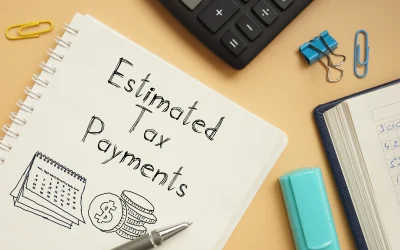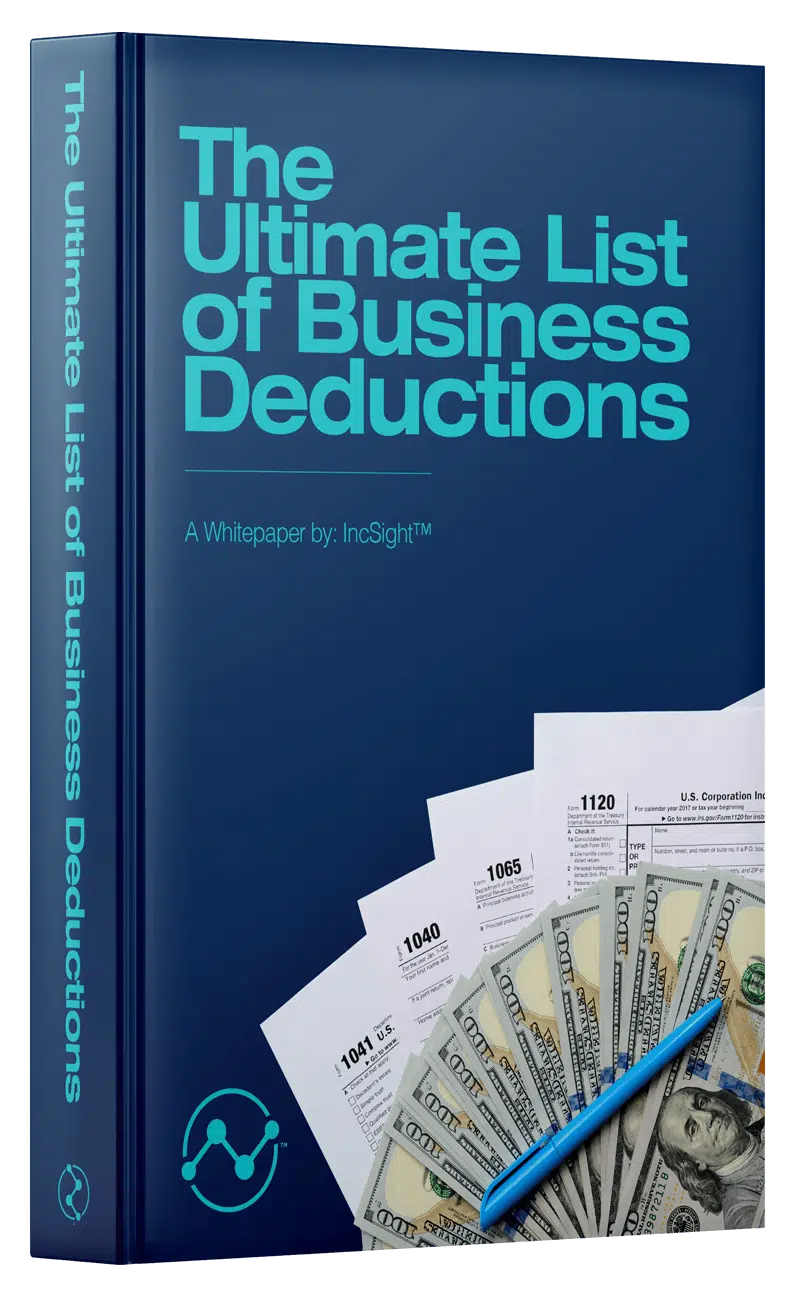The entity you use for your business plays an important role in many different areas, taxes being one of them. There seems to be a lot of confusion among small business owners related to how their business entity is taxed.
We are going to clear the air here and get down to the details of what you need to know about how your entity is taxed.
What Business Entity Types Are There?
An entity is generally something you setup at the state level. Before we get into how your entity is taxed lets discuss the various entity types that we see most small business owners fall into.
- No Entity aka Sole Proprietorship
- Limited Liability Company (LLC)
- C Corporation
You’ll notice you don’t see an S Corporation and that is because an S Corp is not an actual entity at the state level, rather it is a tax election that can be made for either an LLC or Corporation.
You can have an LLC taxed as an S Corporation or a Corporation taxed as an S Corporation. Your entity type would remain the same, you are simply electing for it to be taxed as an S Corporation.
We did an entire series on S Corporations that you can check out and learn more about!
The next thing we want to discuss is this idea of a “pass through” entity.
What Is A Pass Through Entity?
Most small businesses do not pay federal income taxes at the corporate level. Instead the profits from their business flows through (or passes through) to the owners of the company where it is then taxed. Pass through businesses include:
- Sole Proprietor
- Limited Liability Company (LLC)
- S Corporation
A C Corporation would be an entity that is NOT pass through. In a C Corporation the company pays taxes on the profit of the business at the corporate level.
Basic Concept: If you have a pass through entity you have income and expenses related to the business that are reported on a business tax return (Schedule C, 1065, 1120S). The profit from those businesses are then reported on you personal tax return where the owner(s) pay the taxes on it individually.
Where Do I Report My Business Activity and How Is My Business Income Taxed?
As we have talked about, if you have a pass through entity you will pay taxes personally on the profit of your business. If you actively participate in that business it will be considered earned income and subject to ordinary income tax rates. Some business types may also be subject to self-employment taxes.
We did a full Blog Post and Podcast Episode on how earned income is taxed that you can check out here, Earned Income – How Is My Income Taxed?
Where you report your business activity will depend on your entity type:
- Sole Proprietorship or Single Member LLC (No S Corp Election)
- File your business information on a Schedule C on your personal tax return (Form 1040).
- You will pay both ordinary income taxes and self employment taxes on the business profit on your personal return.
- Partnership or Multi Member LLC (No S Corp Election)
- File your business information on a Form 1065.
- Each partner will then receive a K1 with their share of activity which will be used to report on their personal tax return (Form 1040).
- Each active individual partner will pay both ordinary income taxes and self employment taxes on their share of business profit on their personal return.
- S Corporation
- File your business information on Form 1120S.
- Each owner will receive a K1 with their share of activity which will be used to report on their personal tax return (Form 1040).
- Each active individual owner will pay ordinary income taxes on their share of profit on their personal tax return.
- C Corporation (Not a Pass Through Entity)
- File your business information on Form 1120.
- The corporation will pay corporate taxes on the income of the business on the corporate level.
Can You Give An Example of How Business Income Is Taxed?
As we prepare for year-end this is an important piece that I want to dig deeper on and by giving you an example, I think it will help paint a much more clear picture.
All the time we hear from business owners that had a profitable business but wanted to keep money in the business to help grow, instead of taking it out. However, when it comes tax time they get hit with a tax bill and the complaint is always, “I haven’t taken any money out, how could I owe taxes?”
As we discussed above we know that with a pass through entity you are taxed on the profit of the business regardless of how much money you leave in or take out of the business. This is an important concept to understand.
Lets use some numbers for a pass through business to help make this clear.
- Business Revenue: $150,000
- Business Expenses: $50,000
- Owner Draws or Distributions: $65,000
Using this example, the profit of the business would be $100,000 (Business Revenue less Business Expenses). Therefore the owner would pay taxes on $100,000.
You’ll notice in the example, the owner only took out $65,000 from the business but because the total profit of the pass through entity was $100,000 they still would pay taxes on the full $100,000.
Now lets assume that in year 2 there was no income or expenses but the owner took a draw for the remaining $35,000. In that year there would be no profit so the owner would not pay any taxes even though they received the $35,000 and that is because they technically paid the tax on that in the prior year.
Of course this is a very simplified example but I hope that helps make sense of how pass through taxes work.
Key Takeaways of How Is My Business Entity Taxed
- An S Corporation is not a physical entity type but rather a tax election at the federal level. You need to have either an LLC or Corporation that then elects S Corp status.
- Most small businesses do not pay federal income taxes on the corporate level. Instead the profits from their business flows through (or passes through) to the owners of the company where it is then taxed.
- Pass through businesses include: Sole Proprietor, LLC, and S Corp
- A C Corporation is not a pass through entity and instead pays taxes on the corporate level.
- If you are active in a pass through business you will pay ordinary income taxes and possible self employment taxes on the profit of the business.
- With a pass through entity you are taxed on the profit of the business regardless of how much money you leave in or take out of the business.
Keep this in mind as we are closing out the year because once the calendar rolls over to the New Year, the majority of tax planning opportunities get tossed out the window.
You have time now, take a couple hours to strategize and implement so you can ensure when you file your tax return you are paying the lease amount in taxes as legally possible!
- The Time Is NOW To Start Paying Less In Taxes. Join Our Tax Minimization Program (w/ Stress Free Bookkeeping Training)!
What you’ll get:
- Library of Tax Strategies, Implementation Guides, Videos, Downloads, etc.
- Stress Free Bookkeeping Training Program
- Ask A Pro – Unlimited email access to our team, it is like having an accountant in your back pocket!
- Monthly Group Trainings
- Private Facebook Group
- Partner Directory








